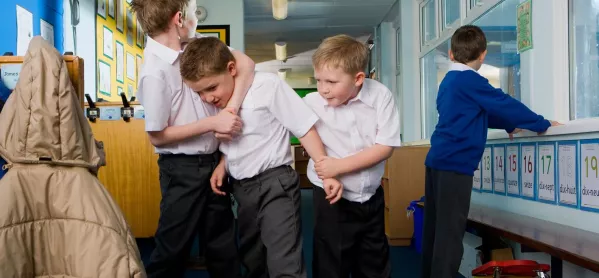When schools reopened in September, after we emerged from lockdown one, we were energised, ready to put our students’ new world together. We sought to give them as close to normal as we could.
We reintegrated students promptly, responding to need as it arose. Students were delighted to be back, even if their faces said otherwise. Staff were too; we had our normality back.
Now we need to do it all again. But this time feels different.
A different era
The tone of this lockdown has been markedly different. Families have had higher expectations put on them, with vastly improved remote learning provision, while more parents are going out to work.
We may have called on our banana-bread-induced resilience in the first lockdown, but it’s been far more normal not to thrive in this one.
The increased demands on our students have meant many of them have really struggled. And while this will ease as we reopen fully, we’re likely to see the repercussions manifest in all manner of ways.
Students could end up in a competitive “who learned best” spiral, forcing those who struggled to believe they’re behind and failing. Others might do the opposite, creating an atmosphere of disengagement: they’ve all failed, so why bother now?
Back to normal
Some students’ mental health will have been negatively impacted; how do we cope with increased demand, when we were only just beginning to see the real issues emerging when we were told to shut up shop again?
Some students will have had an awful time; they’ll need support to reintegrate, to follow routines, boundaries and expectations. Some will have forgotten how to learn effectively, having lost the focus on learning behaviours that school provides. Far too many have lost their loved ones. I could go on.
After the first lockdown, I genuinely believed that getting our students back to business as normal would be the best way forward. I was right, and this re-opening is no different.
We cannot assume the problems our students will re-enter with; if nothing else, it smacks of low expectations.
But there are some key things that school leaders should consider:
1. Normality and routines
Students need to return to their old September normal. Now is not the time for another set of new routines. By all means, make tweaks and improvements, but the more stable and predictable your school operations are for students, the better. School leaders will need to consider where routines need to be retaught to ensure that this stability translates for students.
2. Valuing wellbeing
Emotional wellbeing needs to be at the heart of schools’ plans for reopening. We can do that as schools by reaffirming our strengths and core values. Now is the time to live your values, not laminate them. Relationships and kindness will be at the heart of this, as will ensuring that social and emotional learning places a central part in schools’ curricula, perhaps through PSHE or pastoral curriculums.
That isn’t to say that we suddenly need drop-down days to channel our inner spirits through interpretive dance; rather, keep the core business of school life predictably familiar, but take natural opportunities to meet students’ emotional needs.
3. High expectations
Students’ stress, like anyone’s, often comes from feeling a lack of control. And none of us is in control of the pandemic.
But, through ensuring that our expectations remain high, and that learning remains a healthy and challenging experience, where their own efforts and success can directly translate to feeling in control, will help reduce students’ stress. Remind students that they can still do things, and that they are in control of those things.



